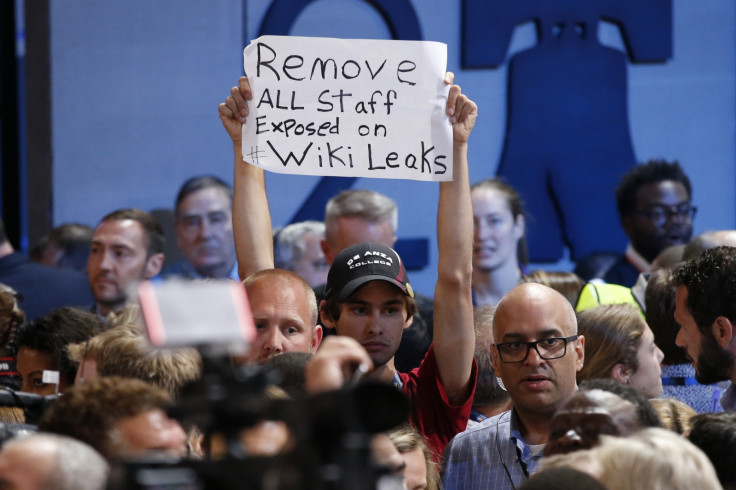Russian hackers may have deliberately left trail in DNC leak as a cyber sabre-rattling move
US security officials say the hackers wanted to show off how Moscow wields cyber influence

Russian hackers said to have broken into Democratic Party computers left a digital trace to show that Moscow is a cyber force to be reckoned with, US security officials have claimed.
CrowdStrike, the security team dealing with the breach, and two other firms concluded that the Kremlin sponsored the groups responsible for the attack, which Moscow has denied.
But evidence that the Russians wanted to show off their role in the hack included the use of Cyrillic characters and the fact that the hackers worked during Russian government hours, but not during Russian public or religious holidays, the unnamed sources said.
Given that a high degree of expertise is required for such a hack, in which 20,000 DNC emails were leaked to Wikileaks, there is speculation as to whether the slip-ups were deliberate clues.
Speaking on condition of anonymity, one US official told Reuters: "Either these guys were incredibly sloppy, in which case it's not clear that they could have gotten as far as they did without being detected, or they wanted us to know they were Russian."
Another official told the agency: "Call it the cyber equivalent of buzzing Nato ships and planes using fighters with Russian flags on their tails."
The Russian government has denied that it was ever behind the hack with the foreign minister Sergey Lavrov saying: "I don't want to use four-letter words."
Andrei Soldatov, who is an expert on the Russian security services and co-author of The Red Web, a book on how the Kremlin controls the Russian internet, says the Russian intelligence services themselves may not be directly tapping the keys when hacking organizations like the DNC.
"We tend to have this picture that our intelligence agencies have these capabilities and that they should be behind it.
"The truth is that, in many cases, it is not state agencies which are behind it but rather groups of hackers funded or supported by the political wing inside the administration of the president," he told Deutsche Welle.
Donald Trump's call to hack
On Wednesday 27 July, Republican candidate Donald Trump urged Russian agents to "find" Democratic nominee Hillary Clinton's emails and release them, in comments that the former CIA director Leon Panetta blasted as "irresponsible" and "inconceivable".
Although the White House has not officially blamed Russia, there is speculation that Moscow would like to influence the US election with the director of the Atlantic Council, Jason Healey, telling The Hill that the Russian leadership did not want Clinton as president.
Pulitzer-prize winning author and Russian expert Anne Applebaum, told the BBC's Today programme on 28 May that Trump's links, such as through his business interests with Moscow should be taken seriously.
"I think his involvement with Russia is important and profound {...} I think what Russia is doing in this election is what Russia has done in many other elections in Europe is that Russia is looking to sow discord and create chaos. The idea is to delegitimise the democratic process," she said.
© Copyright IBTimes 2025. All rights reserved.






















